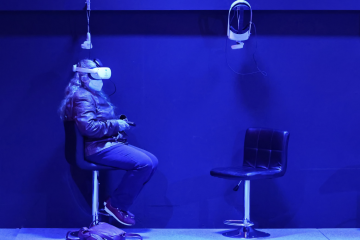The word Islamophobia is everywhere. It is one of those pervasive, ball of wax terms that is sufficiently meaningful yet vague that no one questions what it stands for. The word itself was coined over a hundred years ago, but its new-found popularity with the rise of human rights discourse and globalization has given new life to this old term. So what is the matter with this word?
A number of events in the past ten years have brought the issue of Islamophobia to the fore. Terrorist attacks like 9/11 (New York), 7/7 (London), 11-M (Madrid) were conspicuous causes of this emergent fear of Islam. Other controversies revealed the gravity of attitudes towards Islam. In 2011, the world witnessed the mass murder of 69 people by a Christian and extremist anti-Muslim in Norway. In 2010, Americans were outraged at the planned Islamic Community center in New York, with the media tellingly calling it the Ground Zero Mosque. The Utoya massacre and the Park51 controversy, not to mention the daily scandals on laicité gripping France, give the impression that Islamophobia is a new and singularly contemporary problem.
These days, Islamophobia is also a central concern of human rights groups. Kofi Annan made it one of his personal missions. Problems of discrimination, religious intolerance, restrictions on freedom of expression, and suppression of rights towards Muslims make it seem like there is an unprecedented growth of xenophobic rhetoric aimed at silencing Muslims. Are we living the clash of civilizations that the political scientist Samuel Huntington famously predicted?
Criticism and fear of Islam is, in fact, as old as Islam itself. From the earliest contact with Islam, Europeans constructed Muslims as a threat. Medieval Christians were fearful of Islam, just as Enlightenment thinkers and Orientalists were profoundly prejudiced towards the objects of their studies. In the twentieth century, Protestant evangelicals in the United States preached against Muslims. For their part, Europeans denounced the arrival of Muslim immigrants to their countries.
Islamophobia is used as a catch-all for the racism, bigotry, hysteria, fear mongering and negative stereotyping, all which are considered exceptional to our time period. Journalists and academics, such as Dr. Matti Bunzl, a Professor at University of Illinois at Urbana-Champaign, tell us that Islamophobia is a unique transformation of age-old anti-Semitism towards a new hated other.
Islamophobia is used as a catch-all for the racism, bigotry, hysteria, fear mongering and negative stereotyping, all which are considered exceptional to our time period. Journalists and academics, such as Dr. Matti Bunzl, a Professor at University of Illinois at Urbana-Champaign, tell us that Islamophobia is a unique transformation of age-old anti-Semitism towards a new hated other.
The problem with the word is its misplaced emphasis on the novelty of the phenomenon it describes. Anti-Muslim sentiment is, actually, a timeworn fact. The fact that it is a historic attitude of the West does not excuse it. Charges of Islamophobia, like the theories of Orientalists that oversimplified their Muslim counterparts, risk reducing a complex diversity of opinions about Islam to a single opinion. Some so-called Islamophobes are simply sober critics of religion, not deniers of Muslim rights. Islamophobia boils a crisis of multiculturalism to meaningless finger-pointing games of “Is Islam picking on the West, or is the West picking on Islam?”.
Unless we acknowledge the varieties of attitudes Westerners may hold towards Muslims, the word Islamophobia will obscure the debate about human rights. So too will the project of human rights be knocked off course if it fails to consider Islamophobia as historically rooted and as Kofi Annan would say, a kind of intolerance we must “unlearn”.





